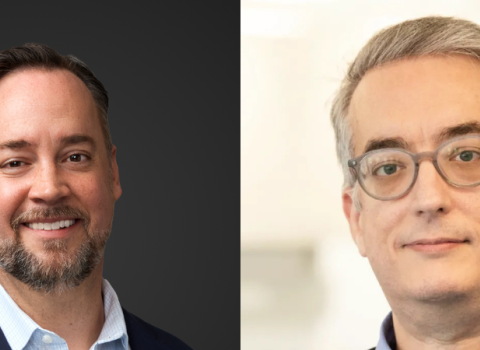
Mathias Uhlén, protein mapper and start-up founder
Uhlén and colleagues said they formed a new company, Atlas Antibodies AB, to commercialize discoveries from a major quasi-public research project, the Human Protein Atlas. Unlike most university spin-outs in Sweden, however, ownership of the company is shared between the researchers, the universities that host them, and some venture capitalists. While not unusual in other countries, that’s a radical idea in Sweden, where intellectual property law normally grants ownership of an on-campus discovery to the researcher rather than the institution.
Atlas’s creation feeds into a growing political debate in Sweden, over whether and how to change the legal system. “In Sweden, the researcher owns the (intellectual) resource. And so in many cases, researchers found a company and raise venture capital,” explained Marianne Hansson, Atlas CEO, in a telephone interview. “The new thing in this company is the fact that a research foundation was founded that owns 32 per cent of the company, and any future profits to the foundation will be returned to the universities.” Uhlén wasn’t immediately available to comment.
The background to Atlas is unusual. Uhlén is one of Sweden’s science stars, discoverer of several of the key lab techniques now used to study human proteins. Besides being a professor of microbiology at KTH, he has also co-founded several biotech start-ups.
Protein map
In 2005, he and colleagues at KTH and Uppsala University began publishing the most comprehensive map yet made of the estimated 22,000 human proteins and where in the body they’re normally found. The project, funded by one of Sweden’s biggest charities, the Knut and Alice Wallenberg Foundation, is a critical step towards figuring out the function of all those proteins. At present, what each protein does and the diseases that happen when it doesn’t, is understood for only a small portion of the entire human proteome, or protein dictionary. So far, it has published 413,568 microscope images of proteins in tissue samples, and data on 718 antibodies targeted to individual proteins.
Atlas Antibodies was formed to sell antibodies developed by the protein researchers, for use in other labs. It also aims to develop new diagnostic tests for cancer, Hansson said. It has three employees, she said. Uhlén is chairman.
The 54 researchers involved in the project contribute intellectual property and a bit of cash, and collectively own 32 per cent of the company. The research foundation, owned by the two universities, holds another 32 per cent. Two VCs, Investor Growth Capital and Scandinavian Life Science Venture, together own 30 per cent in exchange for the bulk of the new company’s capital; Hansson declined to say how much cash was raised. The remaining 6 per cent is owned directly by holding companies for the universities.
In a statement, Uhlén said that “this model for joint ownership of a company by universities, scientists and the business community has gradually emerged out of my earlier experiences from converting research projects into companies”.





 A unique international forum for public research organisations and companies to connect their external engagement with strategic interests around their R&D system.
A unique international forum for public research organisations and companies to connect their external engagement with strategic interests around their R&D system.